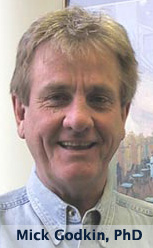 Message from the Director
Message from the Director
Welcome to the Health Advocacy Web Site at the University of Massachusetts Medical School (UMMS). This web site has been developed primarily for health professions students at UMMS but also for educators in general who might have an interest in developing similar health advocacy resources and curricula. A major focus is the development of a resource for UMMS students who are planning domestic or international service projects. Or who wish to find out about international, national and local agencies that advocate for certain populations. The development of this resources is consistent with the adoption of a new competency-based curriculum at UMMS which includes physician as advocate as one of 6 core competencies.
Physician as Patient and Community Advocate
Advocacy Community Education Volunteerism
Advocacy
Scope : The graduate is developing expertise in helping individual patients in need and in elevating the health of populations
Behaviors that demonstarte competence:
a. Can assess, analyze and describe the healthcare needs of defined populations, in particular the specific needs and challenges of vulnerable populations.
b. Uses knowledge of advocacy organizations and community resources to help patients receive needed services.
c. Advocates for comprehensive services and excellence in care for all patients regardless of culture, ethnicity, language or socioeconomic status.
Measures include: poster presentation and faculty observation in Community Medicine clerkship; faculty observation on clinical rotations; evaluation by team members on clinical services.
Community Education
Scope: The graduate understands the importance of educating the entire community about health issues. He/she is beginning to acquire the knowledge and communication skills necessary to become an effective educator.
Behaviors that demonstrate competence:
a. Able to give presentations on health-related issues to general lay audiences, interdisciplinary teams and peers.
b. Can assume responsibility for educating the public about important current health concerns as they arise (e.g., bioterrorism, AIDS, flu shots, advance directives).
Measures include: faculty observation in both preclinical courses and clinical clerkships; resident observation; peer review (new); lay person feedback (new).
Volunteerism
Scope The graduate understands the physician’s obligation to contribute to the larger community. He/she shows personal motivation by seeking opportunities to donate time and expertise to projects that enhance the well-being of others.
Behaviors that demonstrate competence:
a. Participates in local health care initiatives such as free clinics, health care screenings and other community programs, in international programs promoting public health, or in professional or student organizations that influence healthcare and educational policies.
Measures include: narratives from faculty aware of these activities; student enrollment data in volunteer activities; summary of extracurricular activities in Dean’s Letter; end-of-year student self-assessment.
